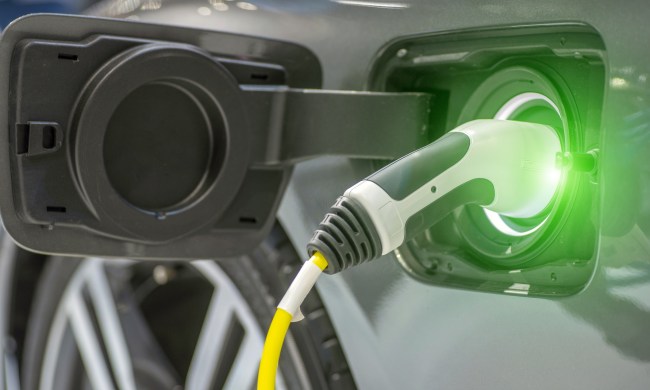If you’re buying an electric car, chances are you’ll need a place to plug it in. Chevrolet knows that, so it’s covering home-charging installation costs for buyers of the 2022 Bolt EV and Bolt EUV. However, the offer only lasts through June, and comes with some caveats, according to InsideEVs.
Chevy, through partner Qmerit, will install a NEMA 14-50 outlet fed by a dedicated 50-amp circuit with its own breaker. This is the kind of outlet used by large appliances, and it also allows so-called Level 2 charging, at 240 volts (a standard 120-volt household outlet is considered Level 1). However, Chevy is only covering what it calls a “standard installation,” so any added costs will be the customer’s responsibility.
Both the Bolt EV and Bolt EUV come standard with a 7.2-kilowatt onboard charger, allowing for a full recharge in seven hours from a Level 2 source, according to Chevy. However, both models are also capable of charging at up to 11 kW, which might require some extra equipment.
Owners who want more charging power can purchase a 40-amp, 9.6kW Level 2 charging station, which can still plug into the outlet Chevy installs, noted InsideEVs. However, owners who want the full 11 kW will need to install a dedicated 60-amp circuit, which Chevy won’t cover, the website said. The installation Chevy will pay for should allow a car to charge overnight, though.
For 2022, Chevy updated the Bolt EV and added the SUV-like Bolt EUV model to the lineup. The 2022 Bolt EV gets a significant price cut (its base price is $5,500 less than the 2021 model’s), and a new look inside and out, but with a carryover powertrain and battery pack. That means the 259-mile range remains unchanged, but that’s still pretty good for an EV at this price.
The Bolt EUV is 6.7 inches longer than the Bolt EV, but otherwise very similar in appearance to the standard hatchback. Chevy promises more rear legroom, but the Bolt EUV is also pricier than the Bolt EV, and offers slightly less range (an estimated 250 miles). However, the EUV gets GM’s Super Cruise driver-assist system, which isn’t available on the Bolt EV. Both models go on sale later this year as part of the first of a wave of new GM EVs that also includes the GMC Hummer EV pickup truck and Cadillac Lyriq SUV.


